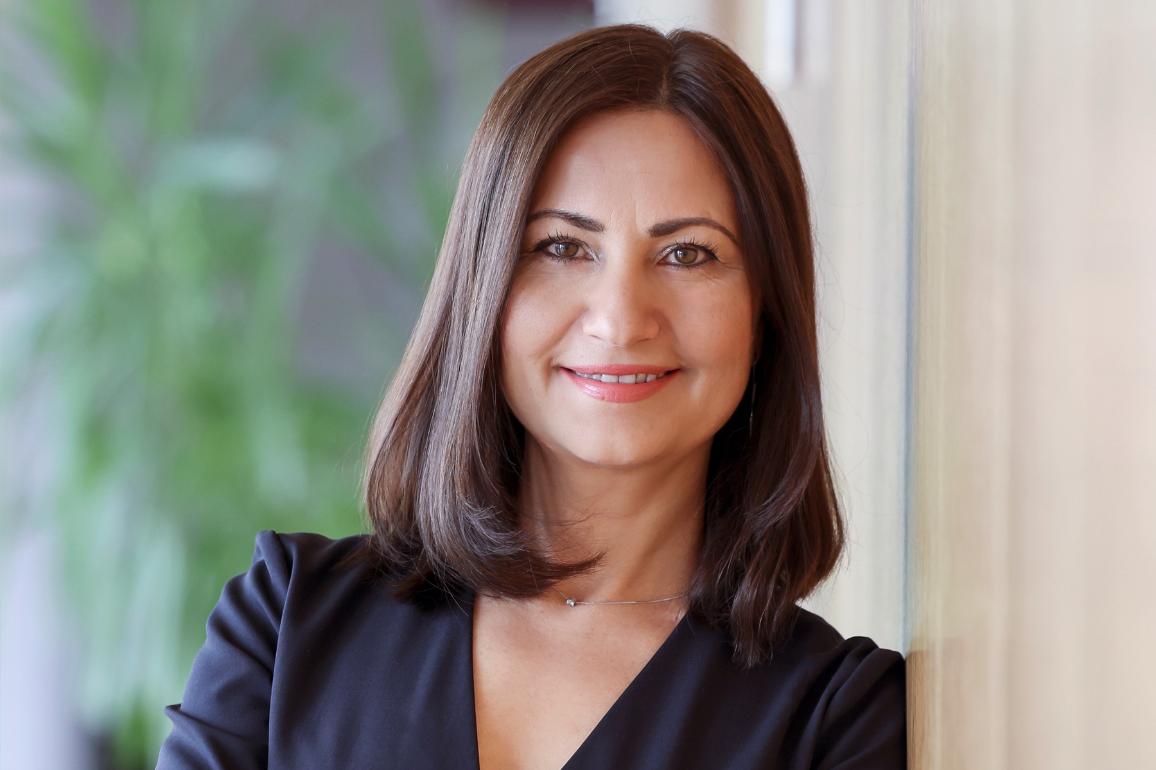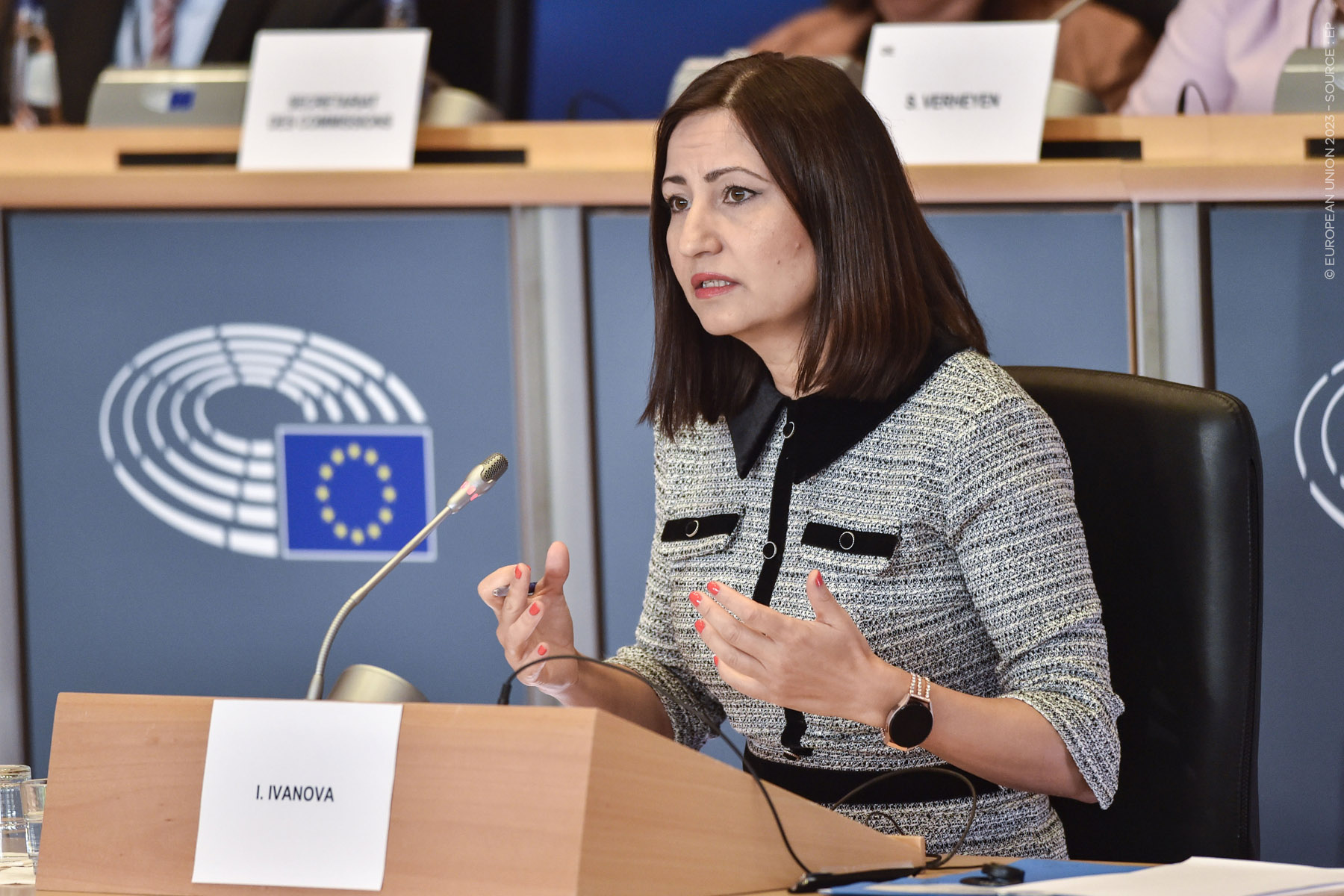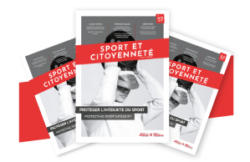“Sport in Europe must continue to be a unifying and empowering force”

In 2024, “Sport” and “Europe” go hand in hand! The EU’s new work plan for sport, the European elections, the Olympic Games 2024… there’s no shortage of milestones. Bulgarian Iliana Ivanova, newly appointed Commissioner for Sport, shares her exclusive views on these issues.*
You have been appointed European Commissioner for Innovation, Research, Culture, Education and Youth. Your portfolio also includes sport. What is your vision of this area?
The beauty of sport lies beyond what happens on the pitch or what is written on the scoreboard. For me it has always been about connecting with others or creating memories that become part of our identity. I recall how my country, Bulgaria, erupted in joy during the 1994 FIFA World Cup. But I also think of how sport – at any level, whether playing or watching – can unite people regardless of their age, gender, culture, beliefs and physical condition. This is why I believe it is our collective duty to make use of sport’s full potential for social cohesion and to benefit EU citizens. Therefore, I am committed to mobilising available resources to strengthen the European Sport Model. My goal is to promote values such as integrity, fair play, respect of human rights, peace, gender equality, environmental sustainability and social inclusion. Upcoming global events hosted in Europe offer opportunities to showcase these values and the power of our European Sport Model.
The EU’s 4th Work Plan for Sport comes to an end in 2024. What is your initial assessment of the priority topics highlighted in this document?
Despite challenges such as the COVID-19 pandemic and the Russian war of aggression against Ukraine, our 4th Work Plan for Sport has made significant progress. Launched in 2021, the HealthyLifestyle4All campaign was a great example of a grassroots-led movement promoting healthy lifestyles across all generations and social groups. It linked sport and active lifestyles with health, food and other policies. A range of sport stakeholders contributed with over 100 pledges.
We have also seen the far-reaching impact that sport can have on society at large. It is embracing innovation and sustainability. It showed that it can contribute to the green transition and show resilience and recover from the impacts of the COVID-19 pandemic or of the Russian war of aggression against Ukraine.
 Preserving the integrity of sport and its values was one of the EU’s other areas of action in this Work Plan. What progress has been made and what is at stake in this area?
Preserving the integrity of sport and its values was one of the EU’s other areas of action in this Work Plan. What progress has been made and what is at stake in this area?
Sport in Europe must continue to be a unifying and empowering force for our societies communities and economies.
The EU Work Plan has charted joint work with our Member States on creating a safe sporting environment for all by promoting gender equality, combating hate speech, violence and discrimination in and off the pitch, and coordinating with international organisations to uphold fair play.
In addition, the Commission’s studies and surveys underpin evidence-based policies. This includes the study on the fight against anabolic steroids and human growth hormones in sport within the EU (2021) and the study on the European Sport Model (2022). A study on Athletes’ Rights in and around Major Sport Events will be published in 2024.
2024 is a special year for European sport, with the Olympic and Paralympic Games being held in Paris, but also the 2024 European elections. What are your expectations of these two upcoming events?
The Olympic and Paralympic Games next summer in Paris will be a major celebration of sport. They provide an excellent platform to embody the vision of a Europe united in diversity and to promote values of excellence, tolerance and friendship. These are the same values that come to mind ahead of any European election – and this year will be no different.
Moreover, the Games present an opportunity to showcase how a major sporting event in Europe can leave a legacy – whether in terms of sustainability, equality, inclusion, youth empowerment, participation, health or mental wellbeing. I know these are part of the ambitious goals of Paris 2024 as well as of our own priorities at European level.
We are committed to contributing to this legacy, like the EU Sport Forum or by promoting our initiatives, such as the European Week of Sport and our annual #BeActive campaign, encouraging a more active lifestyle for all.
This year is a celebration of both and values are ultimately aligned and intertwined. Next year will be a celebration of both and a reminder of our enduring duty to uphold and defend them.
*Interview conducted in January 2024
 This article was published in the magazine Sport and Citizenship n°57 : protecting sport integrity
This article was published in the magazine Sport and Citizenship n°57 : protecting sport integrity







 INSCRIPTION
INSCRIPTION CONTACT
CONTACT FACEBOOK
FACEBOOK